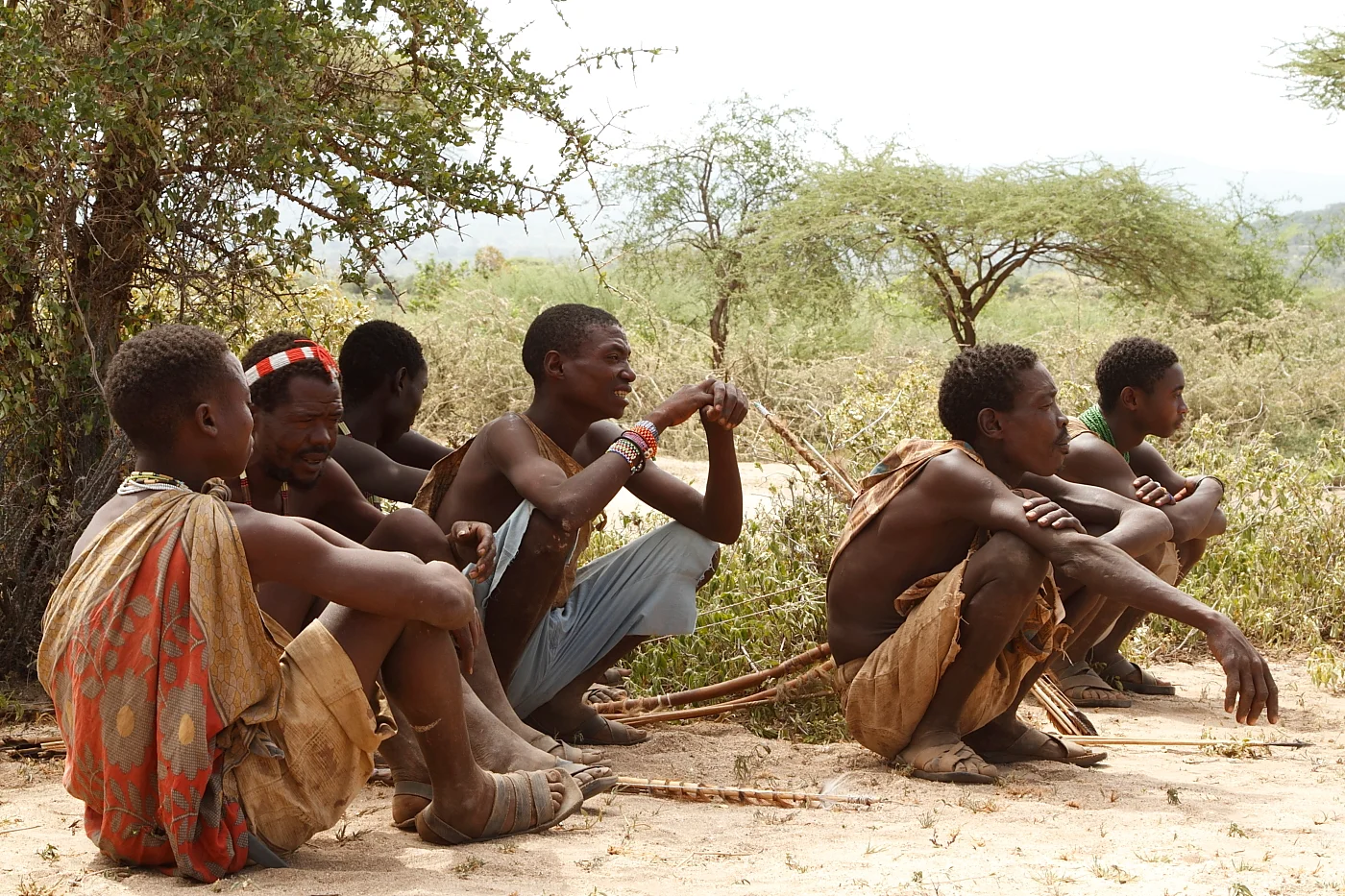
Welcome to Lake Eyasi, Home to the Hadza People in Tanzania
East Africa lies a remarkable example of human history and culture persevering in the modern age in the heart of Tanzania: the Hadza, sometimes known as the Hadzabe people. Numbering around 1,000 to 1,500 individuals, the Hadza are among the last remaining tribes in the world to live a traditional hunter-gatherer lifestyle, offering a window into how our ancestors lived tens of thousands of years ago.
A Way of Life in Harmony with Nature
The Hadza, known locally as the Hadzabe, reside near Lake Eyasi in the central Rift Valley and the neighboring Serengeti Plateau. They have inhabited these areas for thousands of years, primarily isolated from the outside world and the influences of modern society. Remarkably, they have maintained a direct connection with their environment, living in a way that is in harmony with the land and its seasons.
Their diet is a testament to their sustainable lifestyle, consisting mainly of foraged fruits, tubers, honey, and meat from hunting. The Hadza are known for their honey-gathering skills, often scaling great heights to access beehives. Hunting is primarily carried out using bows and arrows crafted from the materials available in their natural surroundings.
Language and Culture
The Hadza language is a unique click language, containing rare sounds not found in most other languages. This aspect of their culture is a means of communication and a rich repository of their history and traditions.
Their societal structure is egalitarian, with no designated leaders or hierarchy. Decisions are made collectively, and resources are shared among all members. This social structure has fostered a strong sense of community and mutual support, essential for survival.
Challenges and the Future
Despite their resilience, the Hadza face significant challenges. Encroachment of agricultural land, climate change, and the lure of modernization threaten their traditional way of life. As younger generations come into contact with the outside world, there is a risk that their unique culture and language may fade.
There are ongoing efforts to protect their land rights and way of life. Organizations and researchers are working to ensure the Hadza can continue their traditional practices while finding a balance with the encroaching modern world.
A Living Legacy
The Hadza people represent an essential part of human history and cultural diversity. They remind us of our deep connection with nature and the importance of preserving traditional ways of life. As the world continues to change rapidly, the story of the Hadza people stands as a testament to the endurance and resilience of human cultures in harmony with the natural world.
Their existence challenges us to think about our lifestyles and the impact we have on our environment. In learning about and respecting the Hadza, we honor their heritage and gain insights into sustainable living and the value of maintaining a deep connection with our environment.
How to get there
The Hadza people live in Lake Eyasi. It is about a 45-minute drive from Karatu Lodge and a 3-hour drive from Arusha town by road.
Activities
The Hadza live a very traditional lifestyle and are somewhatremotey. We recommend visiting them as part of a guided tour. Mawe Lodges is happy to offer cultural tours to see the Hadza. Our tours respect their way of life and ensure that interactions are nondisruptive or exploitative.

